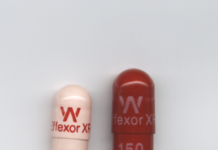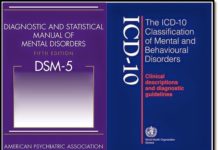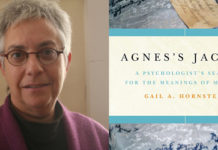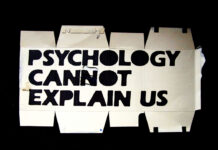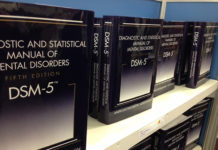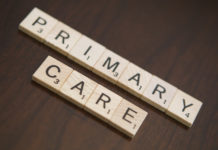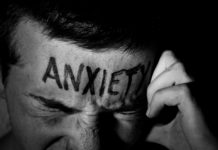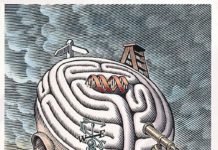Researchers Search for Subgroups Where Antidepressants Are More Effective
The researchers theorized that this increased effectiveness was due not to “antidepressant” properties, but rather to the drug’s side effects, which include insomnia, drowsiness, and nausea.
The Conflicts That Result From Globalizing Euro-American Psychology in India
Researchers examine the transformation of work, life, and identity in India as a result of Western corporate and psychological culture.
Memoirs of a Dissident Psychiatrist
For years I had hoped that psychiatry would free itself from the psychoanalytic doctrine, and when my wish finally came true, my profession went from the frying pan to the fire. My main goal, currently, is to convince professionals as well as the public that most child psychiatric problems can be handled effectively without medication.
Study Investigates Long-Term Effects of Social and Emotional Learning Programs
Social and Emotional Learning (SEL) programs have gained popularity in U.S. schools in recent years. A new study examines the nature and longevity of their impact on students.
Seeking Justice
My life flashed before my eyes as my entire medical history over the last decade was rewritten from having a genetic brain disease to being a victim of a medical scam. It was bittersweet, for I realized that I was not sick and dying, but I had been robbed of so many years of my life due to the psychiatrist’s lies. Now I am suing my former psychiatrist for damages.
Developing Alternatives to the DSM for Psychotherapists
A new article suggests counselors and psychotherapists are dissatisfied with current diagnostic systems and outlines some potential alternatives.
First-Person Accounts of Madness and Global Mental Health: An Interview with Dr. Gail Hornstein
Dr. Gail Hornstein, author of Agnes’s Jacket: A Psychologist’s Search for the Meanings of Madness, discusses the importance of personal narratives and service-user activism in the context of the global mental health movement.
An Alternative Perspective on Psychotherapy: It is Not a ‘Cure’
Kev Harding argues against conceptualizations of therapy as a ‘cure’ to an ‘illness’ and instead offers alternative approaches.
“CDC Warns that Americans May be Overmedicating Youngest Children with ADHD”
The Centers for Disease Control and Prevention (CDC) released new data indicating that as many as 75% of young children who are diagnosed with...
Not So Rare But Rarely Diagnosed: From Demonic Possession to Anti-NMDA Receptor Encephalitis
Throughout the ages, convulsions, contortions of the body and face, including the tongue, super-human strength, catatonic periods, long periods of wakefulness or sleep, insensitivity to pain, speaking in tongues, and a predilection for self-injurious behaviours have all been offered as physical evidence of possession. The modern day interpretation, however, comes with a plot twist befitting a media spectacle. There is growing consensus in the medical community that many prior accounts of “demonic possession” may have represented original accounts of what is now broadly known as autoimmune encephalitis.
What Does Social Justice Really Mean for Psychologists?
Without clarity and consensus around what social justice means, psychologists risk perpetuating injustices that undermine their stated mission.
Dissecting the DSM Debate: Researchers Analyze Critiques Across Audiences
A new study systematically explores critical reactions to the DSM-5 and identifies unifying themes.
Flibanserin’s ‘Effects’ Do Not Outweigh Harms, Review Finds
Despite concerns about the risk to benefit ratio, the FDA approved flibanserin (Addyi) to treat low female sexual desire in August. In a new...
The Unsung Psychiatric Impact of Strep Throat
A sea change is needed in the evaluation of children with perceived psychological disturbances. Parents are told that their child has a fictitious biochemical imbalance in the brain while real medical disorders are overlooked. In our family's case, it was Pediatric Autoimmune Neuropsychiatric Disorder Associated with Strep (PANDAS).
Researcher Critically Examines Movements for Global Mental Health
China Mills raises concerns that global mental health movements obscure social determinants of health and naturalize Western mental health concepts.
The ADHD Drug Abuse Crisis on College Campuses
The abuse of ADHD drugs on college campuses has reached epidemic proportions, according to the authors of a recent review in the journal of Ethical Human Psychology and Psychiatry. ADHD drugs, like Ritalin and Adderall, have become so commonplace on college campuses that students abusing these drugs for studying, weight loss and partying have underestimated their risks. As a result, we have seen exponential increases in emergency room visits, overdoses, and suicides by students taking these drugs.
Western ‘Depression’ is Not Universal
Derek Summerfield, consultant psychiatrist at South London and Maudsley National Health Service Foundation Trust, challenges the assumption that Western depression is a universal condition.
Review Examines Causes and Consequences of Overdiagnosis in Primary Care
A new review in BMJ investigates overdiagnosis in primary care settings, where the majority of mental health care is provided in the U.S.
Is Anxiety to Blame for Missed School?
A new systematic review illustrates features of the relationship between anxiety and school attendance patterns.
Mental Health Concerns Not “Brain Disorders,” Say Researchers
The latest issue of the journal Behavioral and Brain Sciences features several prominent researchers arguing that mental health concerns are not “brain disorders.”
Long-term Usage of ADHD Drugs Linked to Growth Suppression
Findings suggest that treatment not only fails to reduce the severity of “ADHD” symptoms in adulthood but is associated with decreased height.
Student Counseling Services: Do They Really Help the ‘Mentally Ill’?
I used to think that the counseling center would help me to resolve my inner conflicts. That visiting the center would do some good for me. I have since realized that most mainstream “mental health” is more damaging than helpful. These days if student counselors see any problem with a student visiting the center, they send him or her to see a psychiatrist.
My Daughter’s Story
I am now haunted by guilt that my daughter never really had a chance for anything like a normal life, because of the choices that were made for her. Choices made with the 'best' medical advice of the day, which I had never quite accepted as correct, but in the end largely complied with for lack of any clear alternative.
Daughter of a Psychiatrist
Here I was, 15 years old and already in a long-term treatment facility. I was, on paper: crazy! This entire time, all the adults in my life had been speaking for me. I never felt like I was any of the things they said, but I went along with it. What else could I have done? Every time I rebelled, it only confirmed to my mother what she thought of me.
Study Examines Overdiagnosis of Mental Health Disorders in Childhood
Are diagnoses of mental disorders among children and adolescents in developed countries disproportionate to disease prevalence trends?

